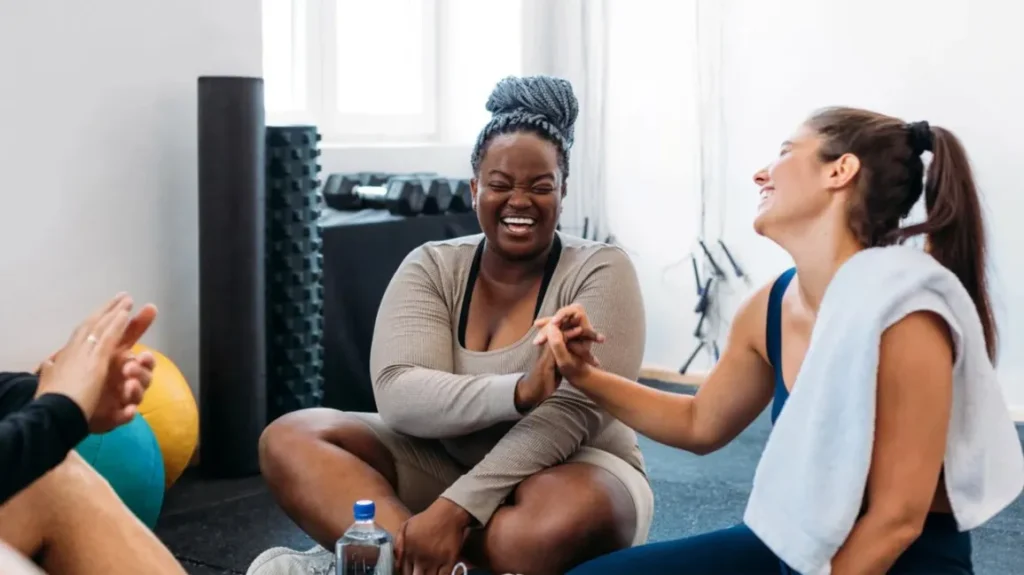Read time : 4 minutes

We often associate exercise with toned muscles, weight loss, or cardiovascular fitness. But beyond the visible physical benefits lies a less-talked-about advantage: the profound impact of regular physical activity on our mental health. In a world where anxiety, depression, and chronic stress are on the rise, exercise has emerged as a natural, accessible, and evidence-based remedy.
Let’s explore how moving your body can uplift your mind.
Exercise Triggers Feel-Good Chemicals
Ever heard of a “runner’s high”? That euphoric feeling after a good workout is real, and it’s thanks to the brain’s release of endorphins. These natural mood boosters reduce pain perception and trigger positive feelings.
In addition to endorphins, exercise also increases the availability of other neurotransmitters like dopamine, serotonin, and norepinephrine, all of which play critical roles in mood regulation. In fact, some studies have shown that regular aerobic activity can be as effective as antidepressants in treating mild to moderate depression.
It Reduces Stress and Anxiety
When you’re stressed or anxious, your body enters “fight-or-flight” mode. Exercise helps regulate the stress response system by lowering levels of cortisol (the stress hormone) and calming the nervous system.
Activities like brisk walking, cycling, dancing, or swimming have been shown to significantly reduce symptoms of anxiety. Even just 10 minutes of moderate physical activity can have immediate benefits for reducing tension and promoting relaxation.
Improved Sleep Quality
Sleep and mental health go hand in hand. Lack of sleep can worsen mood disorders, while mental health challenges can make sleep elusive. Exercise offers a natural remedy.
Physical activity helps synchronize your body’s internal clock and promotes deeper, more restorative sleep. People who exercise regularly report falling asleep faster, sleeping longer, and feeling more refreshed in the morning.
Boosts Self-Esteem and Cognitive Function
Regular movement can enhance your confidence. As your strength, endurance, and physical health improve, so does your self-image and sense of achievement.
Moreover, exercise supports brain health by increasing blood flow to the brain and encouraging the growth of new brain cells, particularly in areas linked to memory, decision-making, and emotional regulation.
Encourages Social Interaction
Group fitness classes, walking clubs, sports teams, or even gym meet-ups offer chances to connect with others. Social interaction is a powerful buffer against loneliness and depression.
Even low-key, shared physical activity, like gardening with a friend or going for a walk with a neighbor, can foster connection and boost mood.
How Much Exercise Do You Need for Mental Health?
You don’t need to train like an athlete to enjoy the mental benefits of exercise. The World Health Organization recommends:
- 150 minutes of moderate aerobic activity per week (e.g., walking, dancing, cycling), or
- 75 minutes of vigorous activity (e.g., running, swimming laps) per week,
- Plus 2 days of muscle-strengthening activities.
- Start small. Even a 10-minute walk daily can lead to noticeable improvements in mood and focus.
Tips for Making Exercise a Mental Wellness Habit

- Choose joy: Pick activities you genuinely enjoy. Movement should feel good, not like a chore.
- Be consistent, not perfect: It’s okay to miss a day. What matters is building a regular habit.
- Pair it with mindfulness: Walking in nature, stretching with awareness, or practicing yoga can amplify mental benefits.
- Track your mood: Note how you feel before and after exercise. This reinforces the connection between movement and mood.
Final Thoughts
Mental wellbeing isn’t just about therapy or medication, it’s also about lifestyle. Exercise is a powerful, side-effect-free tool that can help you feel better, think more clearly, and build resilience in the face of life’s challenges.
So next time your mind feels foggy or your mood dips, try moving your body. A short walk, a quick dance, or a few stretches might be all it takes to start feeling like yourself again.
Meet Your Ai Personal Trainer
Download the App to Take your free Ai health assessment Today [Take Assessment]
Baah Sekyere Agyekum
Myhealthcop physical activity expert